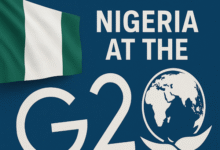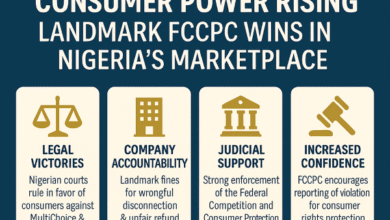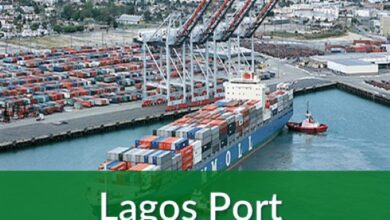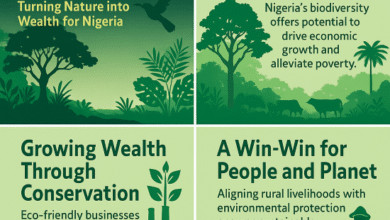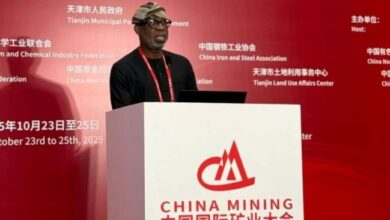LPG Cycle Renewal Heightens need for Nigeria’s market growth
 It has now become imperative that Nigeria develops the production and development infrastructure to meet the demand and supply of natural gas to domestic and industrial consumers in the local market while expanding its frontiers in the global market.
It has now become imperative that Nigeria develops the production and development infrastructure to meet the demand and supply of natural gas to domestic and industrial consumers in the local market while expanding its frontiers in the global market.
With more countries discovering oil and natural gas in commercial quantities, there is a need for Nigeria to intensify domestic gas utilisation by taking advantage of its abundant liquefied natural gas (LPG) resources and sustaining the mechanisms that have supported the rapid growth of Africa’s most populous country’s local LPG market and off-taker contract cycles.
The LPG market in Nigeria has grown in the last five to 10 years since the Nigerian Liquefied Natural Gas (NLNG) domestic gas (DOMGAS) scheme started in 2007. Until 2015 there was moderate growth up to 2021. The LPG market grew by 15 – 20 percent in this period making it one of the fastest-growing markets in the world.
This was achieved through collaboration between the NLNG, the private sector, the Nigerian Liquefied Petroleum Gas Association (NLPGA), and a consortium of local off-takers. It was a private sector-driven initiative with the catalyst being the NLNG on the back of government policy that directed that some volumes of LPG leaving Nigeria should be routed back to the domestic market.
An oil and gas expert and lead partner at Ecocity Project Limited, Norbert Shialsuk, speaking at the Nigerian local gas off-take media round table, a virtual meeting organised by Precise Platform recently said, Nigeria moved from 50, 000 tonnes in 2007 to about one million tonnes in 2020 and 1.30 million tonnes in 2021.
“But things seem to have changed as it is now 846, 000 tonnes in terms of market size year-to-date (YTD) in 2022. We have lost about 500, 000 tonnes. We need to ask the hard question at this point and fix this broken market,” said Shialsuk adding that it is critical to make cooking gas accessible, affordable, and available to consumers in the country because it is cleaner, promotes health, is environment friendly, and abundant in Nigeria.
This is what obtains in other liquefied gas-producing countries, there is a need for the federal government to provide infrastructure in this regard. Significantly, Nigeria seems to have prepared for the future as it has declared a ‘Decade of Gas’ which has defined the next frontier of Nigeria’s oil and gas sector.
According to Shialsuk, there are basically two objectives that the government wants to achieve which are – to make Nigeria both a leading producer and consumer of gas. Nigeria has over 206 trillion cubic feet (Tcf) of gas and another 600Tcf in probable reserves which indicates that Nigeria is a major gas country.
One of the policy thrusts of the government is the introduction of natural gas vehicles. But domestic gas supply must be guaranteed for this to work. This also applies to the gas supply to Nigerian homes and the push for conversions from firewood and charcoal to gas as domestic fuel.
“This is the direction that the world is going because by 2050, natural gas and renewables are expected to drive over 50 – 60 percent of primary energy consumption in the world. So, the future is gas and renewables, which means Nigeria, is going in the right direction.
“However, we have on our hands a major issue in the sense that one of the policy thrusts of the government is suffering a setback. If you look at the objectives, the government has talked about introducing natural gas vehicles but this for me is a medium to long-term objective because Nigeria still lacks the needed infrastructure,” Shialsuk said.
Challenges
Half of the country is not currently connected to the gas grid. Many experts believe that if you are introducing natural gas vehicles you have to make sure the natural gas is available as most of the natural gas grid is down south and if you have to convert compressed natural gas (CNG) for vehicles, then you have to get the gas up north.
“There have been many issues with LPG. Over the past one to one and half years; there have been high prices of the commodity in the market. This has been a result of many things, importers at some point stopped importing LPG, which led to a prolonged period of scarcity, and along the line, you had the devaluation of the naira and this compounded the issues,” Shialsuk further stated.
There is a lack of coordination on the part of the government. Every policy should be progressive. This means if you put a policy today, there is a period of implementation and impact of the policy.
“There are not enough cylinders in the market. Part of the programme the government plans to roll out under the gas expansion programme was to address the issue of cylinders and I believe that this is where the government should have focused attention. But the re-introduction of taxes on importers basically makes them stop importing LPG as taxes on LPG equipment meant that no one will import LPG equipment to roll out retail outlets in the country. This is the wrong policy,” Shialsuk said
The way to go
Beyond the period of impact, you need to introduce newer policies to build on the impact of the previous policy. But if you initiate a policy and 10 – 15 years down the lane you introduce a new policy that rolls back the positive impact of the preceding one, then you are working against yourself.
Shialsuk said, “The government should support the sector by ensuring a steady supply of the product into the market, and this will deal with the issue of scarcity and sustained supply. Having addressed the issue of availability, the government should have built on this impact to deepen penetration for a market estimated at 3.6m tonnes a year by KPMG in 2015. As of date, the NLPGA estimates the market at 5 – 6 million tonnes a year and we also believe the market is within that range.”
Gas revenue replacing oil revenue
The biggest off-taker of gas in Nigeria in terms of natural gas is the power sector. The power sector is dealing with the issue of illiquidity because electricity distribution companies (DISCOS) are not paying their bills. The government will always intervene by bringing money to cover the bills that are not paid.
Generally, DISCOS pay about 30 percent of their invoices, and that is what they have to pay the gas producers. And so, gas producers are not encouraged to go in and drill for more gas and bring it out because they are not going to find an off-taker except the power sector.
Even when they sell to the power sector, they don’t get their money back. Again, there are a lot of issues in terms of what the government needs to do to draw investment to the gas sector, to bring the gas out, and even to drive the local market.
Without cost-reflective tariffs, the illiquidity in the power sector will linger and destroy the viability of that sector as a profitable gas off-taker. The Federal Government estimates its subsidy on electricity tariffs was about N1.0 trillion between 2019 and 2021. The amount represents the gap between the Cost Reflective Tariff (CRT) and Allowable Tariff (AT) which peaked at N28 per unit of electricity supplied to consumers.
Similarly, for the auto-gas policy to drive demand for gas, conversion kits have to be made available and affordable and the petrol subsidy removed. A recent report by the Financial Derivatives Company Limited (FDC) estimates that the petrol subsidy for 2022 would surpass the total expenditure by all the states of the federation in 2021, which was $9.8 billion.
Meanwhile, the Nigeria mid-stream and downstream gas infrastructure fund is meant to appropriate 0.5 percent of the levy on the consumption of petroleum and gas products. This means people are already paying for gas infrastructure. “So, I don’t see why the government cannot provide these conversion kits to people because the mechanism for recovering the cost has been provided for in the Petroleum Industry Act,” Shialsuk said.
To restart and sustain the 15-year growth that has been observed in the domestic LPG market the government has to enable the sector rather than sabotage it by introducing taxes and being uncoordinated in terms of policies and contract cycles.




